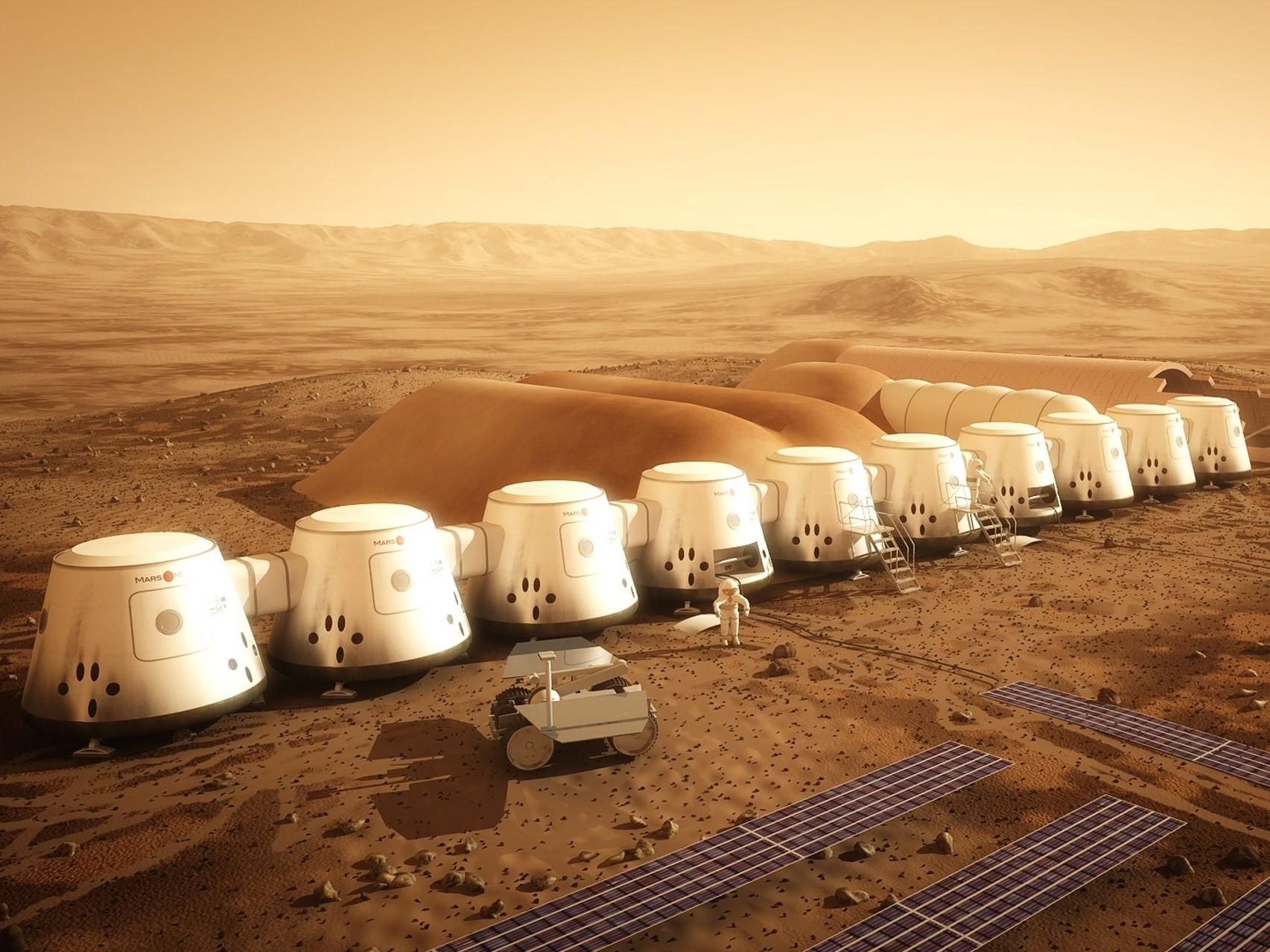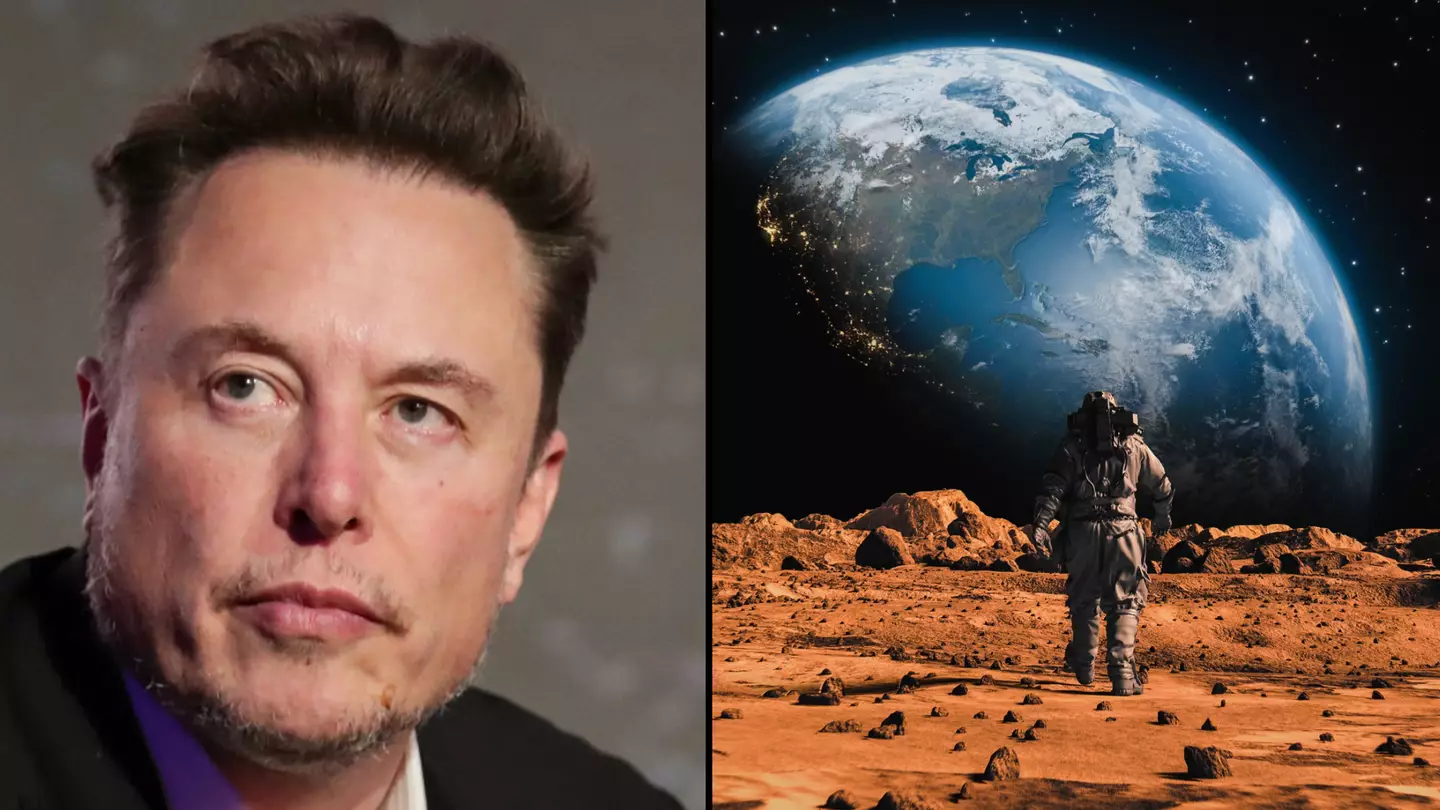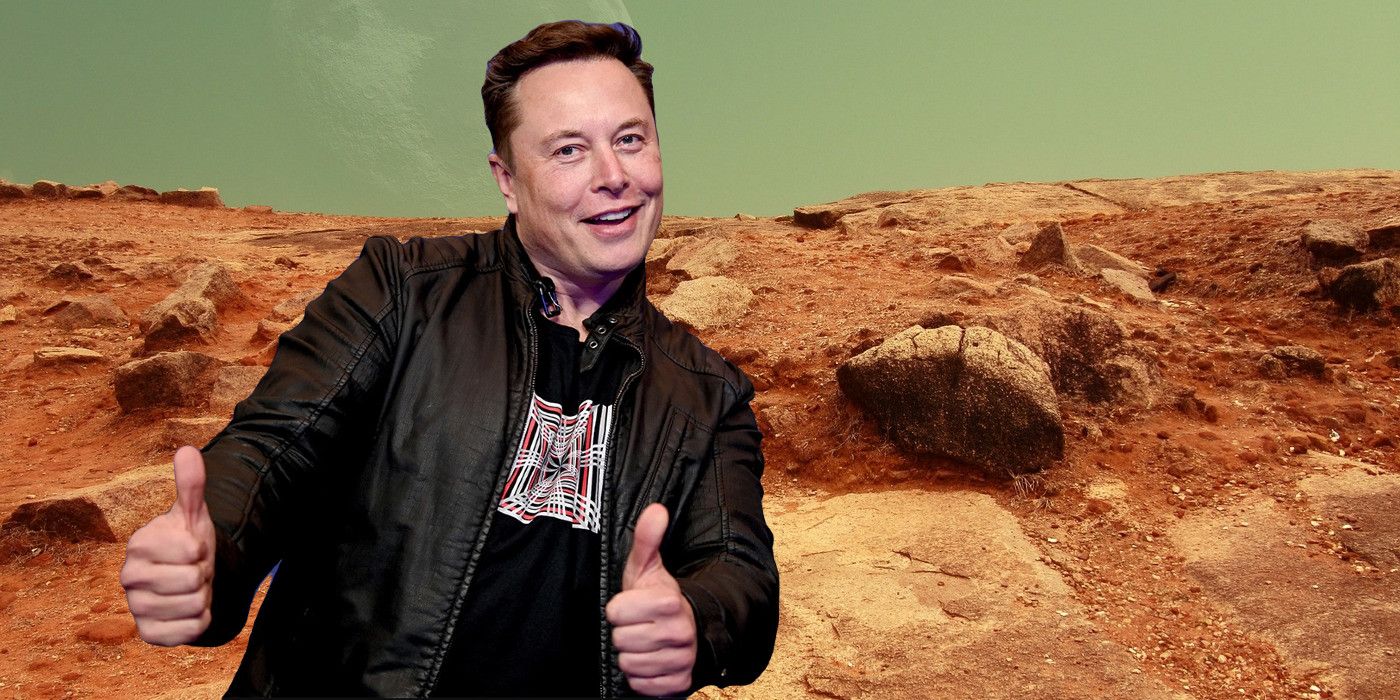
For Elon Musk, the journey to Mars is not just a dream—it’s an urgent necessity. As the CEO of SpaceX, Musk has long been vocal about his ambition to establish a human colony on the Red Planet, framing the endeavor not just as a thrilling technological challenge, but as a safeguard for the survival of humanity.
The question remains, however: is Musk’s vision of space colonization the next great leap for mankind, or is it a dangerous gamble with far-reaching consequences?
Musk has always been a visionary. From his early days as the founder of PayPal to his more recent ventures with Tesla and SpaceX, he has pushed the boundaries of what’s possible. But his plans for Mars may be his most audacious—and most controversial—idea yet. Musk’s argument for colonizing Mars is clear: humanity needs a "plan B."
Whether it’s the threat of nuclear war, climate change, or some other global catastrophe, Musk believes that establishing a self-sustaining colony on Mars is essential for ensuring the long-term survival of the human race. But while Musk’s vision is undeniably bold, it raises significant questions about whether such a massive undertaking is feasible and whether it’s the best way to address humanity’s most pressing problems.
To understand the scale of Musk’s Mars ambitions, it’s important to first examine the technology that would make such a project possible. SpaceX’s development of the Starship rocket is central to Musk’s plan for Mars.

The Starship is designed to be a fully reusable spacecraft capable of carrying both crew and cargo to destinations in deep space, including Mars. Musk has stated that the Starship will be the “ultimate spaceship,” capable of reducing the cost of space travel to a fraction of current expenses.
But while the Starship is an impressive feat of engineering, the challenge of getting humans to Mars and sustaining life on the planet is far from solved. The first and most obvious challenge is the distance. Mars is, on average, around 225 million kilometers (140 million miles) away from Earth, and the journey to get there could take anywhere from six to nine months depending on the alignment of the planets.
The long duration of the trip means that astronauts would need to be in close quarters for an extended period of time, requiring reliable life-support systems, food, and water.
Once on Mars, the challenges would only increase. The Martian atmosphere is 99% carbon dioxide, with little oxygen, and the planet is freezing cold, with average temperatures around minus 60 degrees Celsius (minus 80 degrees Fahrenheit). There is no liquid water on the surface, and the radiation from the sun is far more intense than on Earth due to the lack of a protective magnetic field.
Any Mars colony would need to build habitats that could withstand these harsh conditions while providing a sustainable living environment for its inhabitants.
Musk has proposed using Starship to transport large numbers of people and supplies to Mars, with the goal of eventually establishing a permanent colony on the planet. But the technology behind this plan is still in its early stages. While SpaceX has conducted successful tests of Starship prototypes, the spacecraft has yet to complete a full mission to Mars.

Musk himself has admitted that there are significant technical challenges ahead, from creating a reliable system for producing oxygen and water on Mars to developing the infrastructure necessary for long-term human habitation.
While the technological challenges of Mars colonization are daunting, the ethical and societal implications of such a project are perhaps even more complex. For one, the idea of sending humans to Mars raises serious questions about whether we should be spending vast resources on such a project when there are so many pressing issues here on Earth.
Climate change, political instability, poverty, and inequality are just a few of the global challenges that demand immediate attention. Musk’s critics argue that instead of focusing on the colonization of another planet, the billions of dollars being poured into space exploration should be spent on addressing the crises we face on Earth.
Furthermore, the notion of leaving Earth behind for a new planet raises uncomfortable questions about who gets to go and who stays behind. Musk’s vision of a Mars colony is often framed as a “plan B” for humanity, but it’s unclear who would be selected to be part of the first wave of settlers. Would the Mars colony be reserved for the rich and powerful, or would it be open to a diverse group of people?
Musk has suggested that the first Martian settlers would likely be pioneers—scientists, engineers, and others with the technical expertise needed to establish a self-sustaining colony. However, this raises concerns about elitism and the potential for a new form of inequality in space. The idea that a small group of individuals could escape Earth’s problems while the rest of the world struggles with climate change and resource depletion is troubling, to say the least.

There are also environmental concerns. Mars is a harsh, lifeless planet, and there’s little to no possibility of finding native life there. However, colonizing the planet could have unforeseen consequences. Some scientists warn that introducing Earth life to Mars could potentially disrupt any native ecosystems, should any exist in microbial form, and could lead to irreversible changes in the Martian environment.
Moreover, Musk’s plan for Mars colonization hinges on the idea of terraforming the planet—turning Mars into a more Earth-like environment. While this concept has long been the stuff of science fiction, Musk has suggested that terraforming Mars could be possible through the use of large-scale projects to release carbon dioxide and warm the planet.
However, the technical feasibility of terraforming is uncertain at best, and it remains unclear whether it would be ethical to manipulate an entire planet in such a drastic manner.
Despite these concerns, Musk’s Mars vision does present some compelling arguments. As he frequently points out, humanity faces many existential threats, and Earth is not guaranteed to remain habitable forever. The risk of global catastrophes—whether natural (such as asteroid impacts or supervolcanic eruptions) or human-made (such as nuclear war or environmental collapse)—means that it’s not unreasonable to consider the possibility of an off-planet backup for civilization.
A colony on Mars could serve as a safeguard, ensuring the survival of human culture, technology, and knowledge should something catastrophic happen to Earth.

Furthermore, the challenges of colonizing Mars could lead to incredible advancements in technology and science. The work being done by SpaceX, NASA, and other space agencies to develop the technology necessary for Mars exploration could have a profound impact on other fields, from medicine to renewable energy to robotics.
Space exploration has historically driven innovation, and Musk’s vision for Mars could be the catalyst for a new era of technological progress.
However, the idea of sending humans to Mars also raises the question: Is this a necessary leap for humanity, or just an ambitious gamble that could lead to unforeseen consequences? Musk’s vision for Mars colonization is undoubtedly inspiring, but it is fraught with risks, both technical and ethical.
The cost of such an endeavor would be astronomical, and the likelihood of success remains uncertain. Should we, as a species, be investing so heavily in a potential escape route to another planet, or should we focus on solving the challenges we face here on Earth?
The reality is that while space colonization might hold the key to humanity’s survival in the long run, it may also come with costs that are difficult to predict. The race to Mars could end up being a distraction from the more immediate threats we face, such as the worsening climate crisis or growing geopolitical instability.

As Musk himself has said, "We are a species with a great sense of urgency, but we’re also a species that tends to put off the most important things."
In the end, the question of whether Musk’s Mars dream is a bold step forward for humanity or a dangerous gamble is one that will likely continue to evolve as space exploration progresses.
What is clear, however, is that Musk’s ambitions for Mars are already shaping the future of human exploration, and the potential consequences of this new frontier are far-reaching.
-1748228607-q80.webp)
-1743478473-q80.webp)

